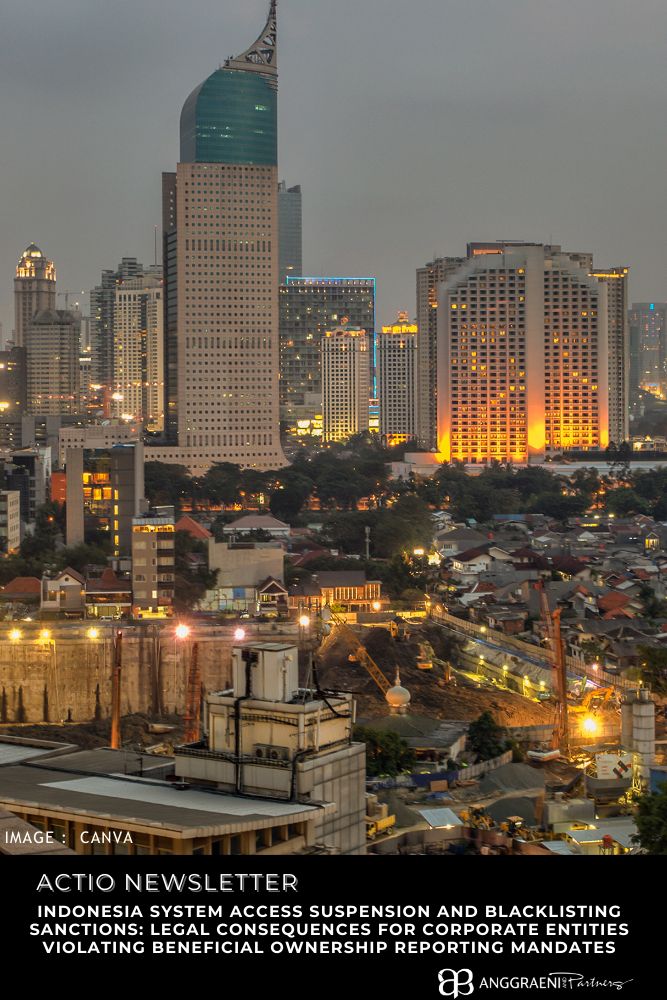Indonesia’s Approach to Extraterritorial Financial Crimes and Legal Confidentiality
Indonesia’s laws and regulations governing financial crimes generally do not have extraterritorial effects. However, there are exceptions for criminal acts of corruption and money laundering. According to Article 16 of Law No. 31/1999 on the Eradication of Corruption Crimes (as amended) and Article 10 of Law No. 8/2010 on Money Laundering, any person outside Indonesia who participates, assists, conspires, provides opportunities or information to commit these crimes can be punished as a perpetrator.
The extraterritorial principle has also been applied in business competition cases handled by the Indonesia Competition Supervisory Commission (KPPU), such as the Very Large Crude Carrier (VLCC) Case (Decision No. 07/KPPU-L/2004) and the Temasek Case (Decision No. 07/KPPU-L/2007).
Indonesian authorities commonly cooperate with foreign counterparts on transnational crimes like trafficking, cyber crimes, and financial crimes. Indonesia plays an active role in international forums, has cooperation agreements bilaterally and multilaterally, and collaborates with international law enforcement institutions. Specifically for financial crimes, Indonesia cooperates with AUSTRAC, the Egmont Group on Money Laundering, and the Asia Pacific Group on Money Laundering. It has also ratified several relevant UN conventions through national laws, including the UN Convention against Corruption (Law No. 7/2006).
Regarding legal professional privilege, advocates (lawyers) in Indonesia have certain protections under Article 19 of Law No. 18/2003 on Advocates. They must keep client communications confidential, and their files/documents and electronic communications are protected from seizure or inspection. However, this privilege is invalidated if the advocate obstructs investigations in bad faith. For example, in a corruption case (Supreme Court Decision No. 3315 K/Pid.Sus/2018), an advocate was punished under Article 21 of the Corruption Law for intentionally preventing the investigation of their client. So while client confidentiality is protected, advocates cannot abuse this privilege to obstruct legitimate financial crime investigations in an unlawful manner. Indonesian authorities can overrule it in certain circumstances when advocates act in bad faith.
DISCLAIMER:
This disclaimer applies to the publication of articles by Anggraeni and Partners. By accessing or reading any articles published by Anggraeni and Partners, you acknowledge and agree to the terms of this disclaimer:
No Legal Advice: The articles published by Anggraeni and Partners are for informational purposes only and do not constitute legal advice. The information provided in the articles is not intended to create an attorney-client relationship between Anggraeni and Partners and the reader. The articles should not be relied upon as a substitute for seeking professional legal advice. For specific legal advice tailored to your individual circumstances, please consult a qualified attorney.
Accuracy and Completeness: Anggraeni and Partners strive to ensure the accuracy and completeness of the information presented in the articles. However, we do not warrant or guarantee the accuracy, currency, or completeness of the information. Laws and legal interpretations may vary, and the information in the articles may not be applicable to your jurisdiction or specific situation. Therefore, Anggraeni and Partners disclaim any liability for any errors or omissions in the articles.
No Endorsement: Any references or mentions of third-party organizations, products, services, or websites in the articles are for informational purposes only and do not constitute an endorsement or recommendation by Anggraeni and Partners. We do not assume responsibility for the accuracy, quality, or reliability of any third-party information or services mentioned in the articles.
No Liability: Anggraeni and Partners, its partners, attorneys, employees, or affiliates shall not be liable for any direct, indirect, incidental, consequential, or special damages arising out of or in connection with the use of the articles or reliance on any information contained therein. This includes but is not limited to, loss of data, loss of profits, or damages resulting from the use or inability to use the articles.
No Attorney-Client Relationship: Reading or accessing the articles does not establish an attorney-client relationship between Anggraeni and Partners and the reader. The information provided in the articles is general in nature and may not be applicable to your specific legal situation. Any communication with Anggraeni and Partners through the articles or any contact form on the website does not create an attorney-client relationship or establish confidentiality.
By accessing or reading the articles, you acknowledge that you have read, understood, and agreed to this disclaimer. If you do not agree with any part of this disclaimer, please refrain from accessing or reading the articles published by Anggraeni and Partners.
For further information, please contact:
P: 6221. 7278 7678, 72795001
H: +62 811 8800 427
Anggraeni and Partners, an Indonesian law practice with a worldwide vision, provides comprehensive legal solutions using forward-thinking strategies. We help clients manage legal risk and resolve disputes on admiralty and maritime law, complicated energy and commercial issues, arbitration and litigation, tortious claims handling, and cyber tech law
S.F. Anggraeni
Managing Partner
Yoga Adi Nugraha
Managing Associate Practice Group White Collar Crime and Investigation
Aga Kristiana Silaen
Middle Associate
Nazaruddin Insyiroh
Trainee Associate



